
Last week I read the book of James in the Bible. Four times. The glory of this accomplishment is reduced, however, by the fact that James is only 5 chapters long—3 pages in my tiny ESV TruGrip edition. However, when you read a book four times, you do start to pick up on key ideas, one of which caught my attention:
If anyone is a hearer of the Word and not a doer, he is like a man who looks intently at his natural face in a mirror. For he looks at himself and goes away and at once forgets what he was like. (James 1:23-24)
Strange. Images of weird amnesia and psychotic second-guessing came to mind (mostly supplied by the great depressing film Memento). James was making a striking statement, and something counterintuitive was being implied. The message, as I saw it, was this:
Your core identity is elusive. It's hidden, a secret slipped between the pages of a book. The book is a written mirror, reflecting what ought to be. Look in the Bible, and you may discover who you are. Look elsewhere, and prepare yourself to be conned.
Conversely, James is saying, The face you see in the bathroom mirror is not you, not precisely. It's more like an indirect reflection. The real you is in the book.
This in itself is somewhat shocking. The me I see is not really me? In a flash, some part of me understood it: Of course. The real me would definitely be able to dunk... But just as quickly I realized there were deeper questions at stake. Philip Yancey hints at it in his book, Rumors:
Paul had two pictures of himself. One image he could view in a mirror, and the insomnia, beatings, imprisonments, and deprivations must have left their mark in the gaunt and weary face that stared back at him from the crude Roman glass. The other image he could not see. Nevertheless he could sense his inward self being renewed and made more fit, tempered by hardship.
This also resonates. The inner man is more crucial than the outer. The inner gradually reflects the "priorlife" reality of heaven, and a world that will require strength, speed, and spiritual agility, a body built to withstand the full weight of glory, as C.S. Lewis would say.
James is stating that we find the key to this secret, inner—and, strangely—natural me inside the pages of the Bible. I read this book every day, but I can't say I always come away with a refreshed image of my natural as-intended-by-God self. Apparently James is writing to me.
So if I open the Bible, admire what I read, then shelve it, I'm living a lie. I'm like an athlete who struts with weights for a portrait, then tosses them aside. Or a student who reads his books to acquire a "multiple choice" acquaintance. I'm discarding the very truths which will shape me if I wield them.
All right, James. Go on and say Gotcha! You got me. You pack a lot of psychology, a lot of emotional punch, into a couple verses, and I'm biting. Suppose I take you at your word, which is really God's, and begin looking for the natural me, someone both like and unlike the person I sort of know. Just where am I to be found in the pages of the Bible?
The answer that surfaced caught me off guard.
My tendency, I think, is to scan the Bible for abstract spiritual qualities—hope, let's say, or humility—which I try to induce into my life, with Christ's help. And such distilled virtues are helpful reference points, actually essential. But when I'm searching for a picture of my "natural face" something more than a laundry list of values would be nice. An amber glow doesn't quite cut it either. What I would really like to find is something more human, a vision, however beatific, that has a face and flesh and blood—a "me" that looks a little more like...me. And that's precisely what I find.
As I mulled it over, my perspective shifted a few degrees, and I was surprised to notice pieces of me littering the pages of this book. I was fragmented, but everywhere. The eagerness I felt to run and pick me up was almost childish.
There was a piece of the natural me in young David: a poetic abandon, economy of motion, a facile grace that was awful or magnetic, depending on where you ran into him. David, the writer of songs and the killer of thousands on the fields of battle.
I found a fragment of the natural me in old Caleb, pleading for permission to storm one last hill and kill giants, never mind that he was 85. Fierce tenacity.
There was a strand of me in Mary, Christ's mother, too, an ennobling submission to the will of God, peace in pain, the bitter not wiping out the sweet.
And there was more...here and there I caught a glimpse of me in Christ himself, the One for whom all adjectives fail.
The "natural man" that James described, the primal, perfect creature God intended, looked out at me through a hundred different pairs of eyes. The glimpses were fleeting, not always on the surface, and always punctuated by unpleasantness. The Christian heroes are not saints; or, perhaps more accurately, the saints are not angels.* Their souls throw off shards of "natural" glory, but it is intermittent. Only Christ portrays it perfectly, and he is so perfectly natural as to be a mystery. Still, there are glances and moments I can capture.
We look in the Bible, this magical mirror of a book, and find flashes of revelation, scraps of God-reality to be taken and swallowed, pieces of a portrait that will finally be of us—if we can only remember what the picture looks like.
"Get it already," James insists: The only way to remember it is to look, take note, and paint it again each day, acknowledging the Painter who guides your hand.
* Even here, a disclaimer must be applied on behalf of the angels, who ought to be understood as wondrously perfect. They are not sagacious, ultimately-boring "spirit guides" or heart-melting charmers in spaghetti straps or weightless little things with a bent for string instruments. Angels fight God's wars and thunder out his messages.
Like what you read? Don't forget to
bookmark this post or
subscribe to the feed.
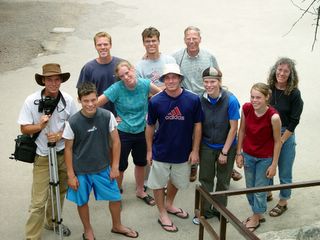

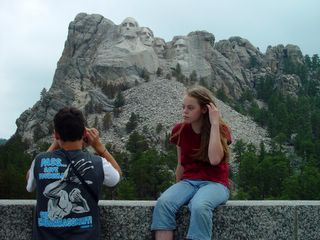
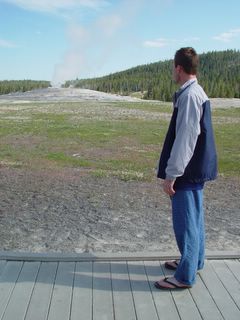
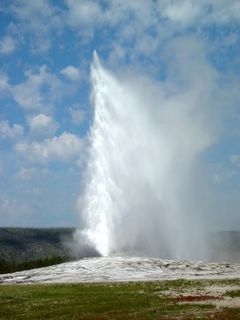


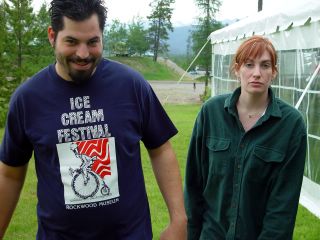
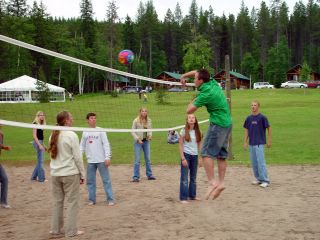


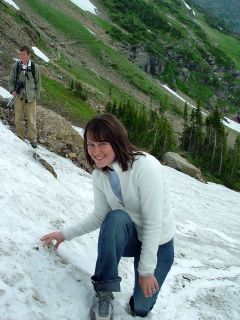


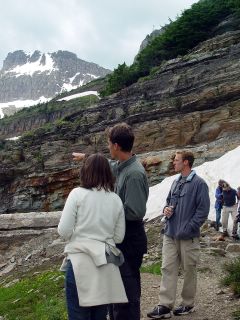

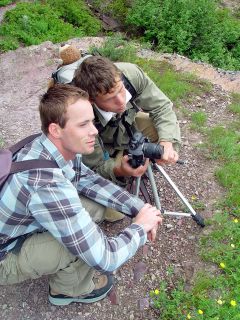



















3 comments:
Post a Comment